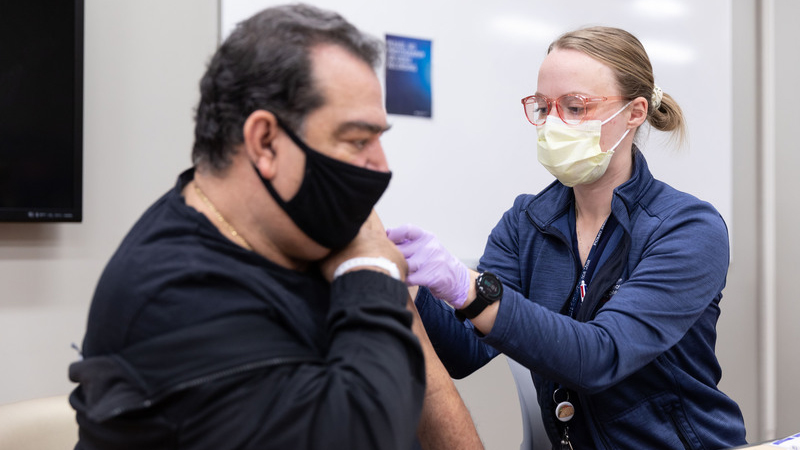
The Advisory Committee on Immunization Practices—a group of medical and public health experts that makes vaccine recommendations to the Centers for Disease Control (CDC)—recently said it needs more information before it supports additional doses for those already vaccinated for COVID-19.
The group is balancing the potential risks of getting a booster shot against the very real risks that come with contracting the disease. To do that, they’re carefully watching for many things, including:
- Signs vaccine effectiveness is wearing off, such as an increase in the numbers of “breakthrough” cases among people fully vaccinated.
- Results of studies looking to see if booster doses or mixing vaccines from different manufacturers offers more protection than the current protocol.
- Changes in the virus that make new variants harder to fight.
The committee discussed the possibility that boosters may become necessary for select groups who are at greatest risk of exposure or infection, including people who are over age 65, healthcare personnel, residents of long-term care facilities, and those who are immunocompromised.
While Pfizer is working to get approval for booster doses, the CDC and Food and Drug Administration (FDA) say they’ll continue to watch and wait for now. They issued a joint statement on July 8 maintaining that Americans who’ve been fully vaccinated don’t need a booster shot at this time. Read the full statement.
So far, the signs are good that we won’t need booster shots any time soon. It’s been more than six months since Americans started getting the first authorized vaccines, and vaccine effectiveness is holding strong. One recent study suggested the Pfizer and Moderna mRNA vaccines may remain beneficial for years, at least with the existing variants of the virus. Researchers say the people who had the virus and were later fully vaccinated may have even more resilient immunity. Time, and more studies, will tell.
“We won’t need a booster shot any time too soon,” says Tamara Sheffield, MD, Intermountain’s medical director for community health and prevention. “The CDC is looking at this very carefully and they’ll let us know when they have an answer we can rely on. In the meantime, the most important thing we can do is encourage everyone to get the vaccine. People are still getting sick, filling our ICUs, and in some cases, they’re dying. And 98% to 99% of those people are unvaccinated. We can prevent long-term health problems and deaths if people will just get vaccinated.”

